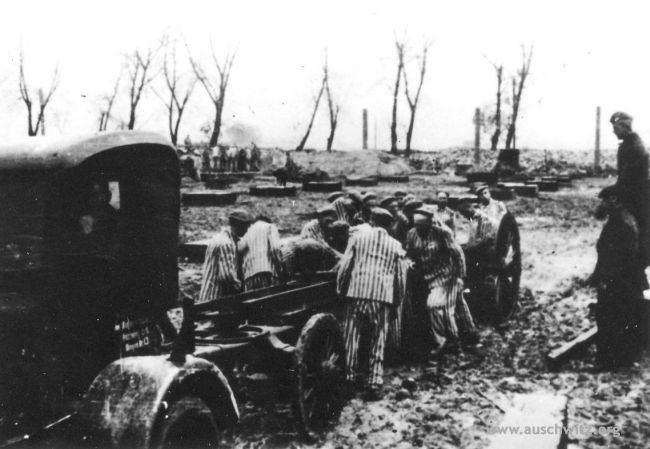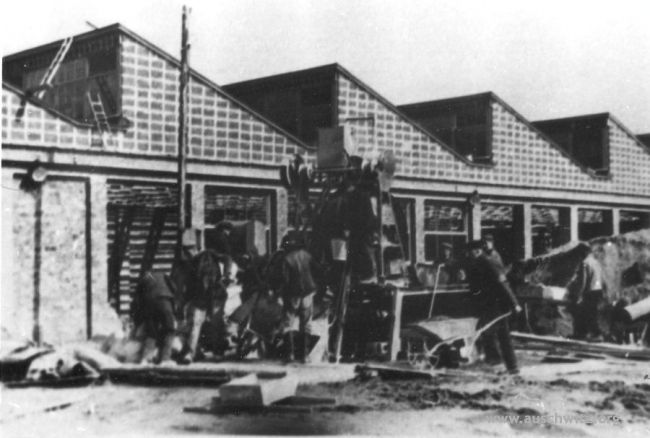Iedereen kent de beruchte woorden 'Arbeit macht frei' die bovenaan de poorten van Auschwitz staan. Desalniettemin is de belangrijkste associatie met Auschwitz dat als concentratie- en vernietigingskamp zoveel Joden werden vermoord door de nazi's. Minder bekend is dat de gevangenen vanaf het begin als slavenarbeid werden ingezet. In deze online lezing (in het Engels) gaan we daar dieper op in. Deze lezing houden we in het kader van de Maand van de Geschiedenis. Deze heeft dit jaar als thema 'aan het werk'. Registratie voor deelname aan Zoommeeting verplicht.
‘Arbeit macht frei’ – Auschwitz and the exploitation of humans
Everybody knows the infamous words ‘Arbeit macht frei’ that top the gates at Auschwitz. Nevertheless the main association with Auschwitz is that as the concentration and extermination camp were so many Jews were murdered by the Nazis.
Less known is the fact that right from the start the prisoners were used as slave labour. What started with a train of Polish (political) prisoners arriving in Auschwitz in June 1940 rose to a complex of the three large camps and over 40 subcamps.
The prisoners were used to construct news camps and factories. They were used to run those factories and to carry out a multitude of jobs that kept the camps going. These jobs ranged from work in the bakery, kitchens and infirmary to the various horrendous tasks surrounding the extermination of the Jews.
In our online presentation Alina Nowobilska will share with you more background information on the industry of slave labour in and around Auschwitz and the fate of those slave labourers.
- Date: Monday October 4th
- Time: 19:30
- Online: Zoom and livestream on Facebook
- Registration Required via Zoom
Alina graduated from Birkbeck University with a Master in European History. Her dissertation was on the survival of the first mass transport into Auschwitz. Alina divides her time between working for the Auschwitz museum and her recently started work at the Pilecki Institute. Besides this she finds time to be active on social media (twitter: @ww2girl1944) educating the public about her historical expertise. She has visited schools and given talks to children and pre-teens regarding various topics of the Second World War, including concentration camps, as well as public talks in England like at the Chalke Valley History Festival and various conferences in the UK and abroad.
She is also the co-host of the podcast History Hack available on a.o. Spotify and Apple Music.
We are thrilled that she cooperates with Polen in Beeld for this online presentation.


Images via http://auschwitz.org/en/gallery/historical-pictures-and-documents/life-and-work,8.html







